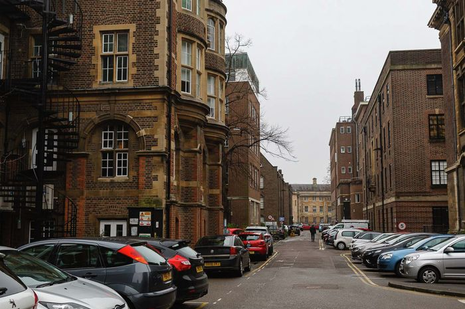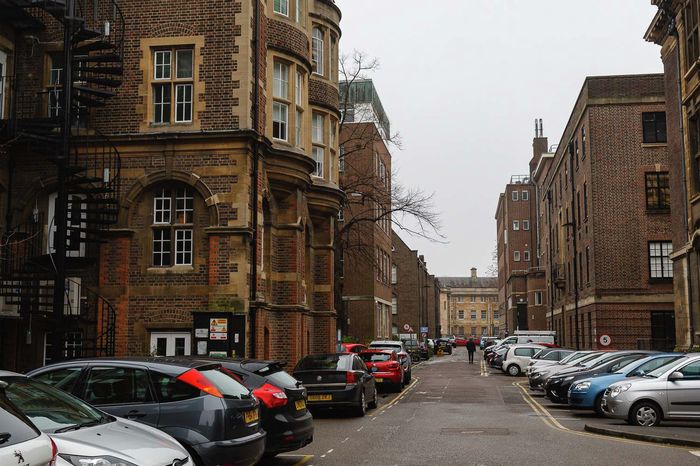Disabled students overcharged for accessible rooms
Students have also expressed frustration over the room ballot, which means they cannot choose a room with their friends

Colleges routinely overcharge disabled students for rooms meeting their needs, and do not allow them to live with their friends, a Varsity investigation has found.
Should a disabled student require a more expensive room because it meets their access needs, colleges are legally obligated to cover any additional costs. However, colleges have not always made students aware of this.
One disabled student from Emmanuel repeatedly had to correct their college bills. In their first year, the college continued to try and charge them the full price of an ensuite room, and only backed down when the student told them that it was covered by the 2010 Equalities Act.
They said: “It’s very much a bad faith thing that they don’t inform.”
“This is a legal obligation they are fulfilling and they’re making us feel like we shouldn’t be asking for it, and it’s an act of good will on their part to accommodate us.”
Whilst most colleges allow students to ballot with their friends, disabled students who require certain facilities are usually excluded from the ballot so they can choose a room that meets their access needs.
However, there have been instances where students have been given the choice of joining the ballot and living with friends, or being guaranteed a room that meets their access requirements.
One anonymous Sidney Sussex student was told that they could either have a tutorial room and not be guaranteed a room with friends, or join the normal ballot.
“I felt forced to choose between my physical and mental health. I ended up in the normal ballot and even though my access needs have changed, that choice meant I couldn’t have access to a tutorial room this year either.”
When requested for comment, Sidney Sussex stated: “Like all Colleges, we recognise the challenge of meeting the accommodation needs and preferences of our students, particularly those with disabilities. We strive to work responsively and constructively with students to find workable solutions.”
This issue is not unique to any one college. A disabled student at Murray Edwards requested to choose a room that met their access needs with a friend, after it emerged in an undergraduate liaison meeting that a two disabled students were given special permission to ballot with a friend last year.
They were told by college accommodation services that they would prefer the student to join the ballot, and then they would fit the room with the necessary access requirements later. The student described feeling as though they were deemed “not disabled enough” to choose a room with a friend.
When requested for comment, Murray Edwards confirmed to Varsity that two students who were exempt from the ballot for disability reasons had been allowed to name a friend to ballot with them “in order to meet the specific requirements of the students with access needs.”
“The room ballot aims to achieve a fair allocation of rooms for all students. We encourage all students with access needs to discuss their requirements with us, so that we can make every effort to accommodate their requests without disadvantaging others unfairly.”
The Disabilities Officer for Medwards, Lizzie Shaw, said that colleges should allow all disabled students to ballot with one friend.
She said: “Whilst it is great that some colleges will let students ballot with a friend, not extending this to all disabled students within a college means that others can feel ‘not disabled enough’ to get this reasonable adjustment.”
“I found it very daunting as I came to Cambridge not knowing who I’d be living with. Being able to live with just one friend would really help the isolating experience many disabled students have.”
The anonymous student from Emmanuel added that the nature of the collegiate system makes it more difficult to enforce a consistent policy towards disabled students.
“There is nuance, there are things that are good, but it’s still far harder than it needs to be for disabled students, and it still relies on a lot of self-advocation.”
 News / Judge Business School advisor resigns over Epstein and Andrew links18 February 2026
News / Judge Business School advisor resigns over Epstein and Andrew links18 February 2026 News / Hundreds of Cambridge academics demand vote on fate of vet course20 February 2026
News / Hundreds of Cambridge academics demand vote on fate of vet course20 February 2026 News / Petition demands University reverse decision on vegan menu20 February 2026
News / Petition demands University reverse decision on vegan menu20 February 2026 News / CUCA members attend Reform rally in London20 February 2026
News / CUCA members attend Reform rally in London20 February 2026 News / Gov grants £36m to Cambridge supercomputer17 February 2026
News / Gov grants £36m to Cambridge supercomputer17 February 2026










